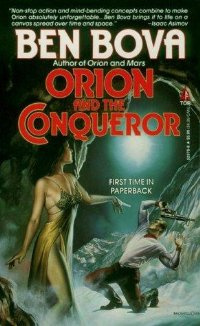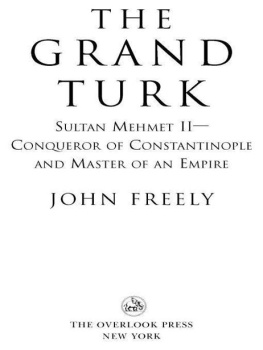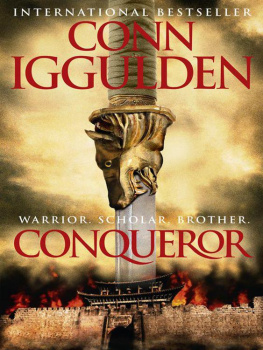This edition is published by ESCHENBURG PRESS www.pp-publishing.com
To join our mailing list for new titles or for issues with our books eschenburgpress@gmail.com
Or on Facebook
Text originally published in 1946 under the same title.
Eschenburg Press 2018, all rights reserved. No part of this publication may be reproduced, stored in a retrieval system or transmitted by any means, electrical, mechanical or otherwise without the written permission of the copyright holder.
Publishers Note
Although in most cases we have retained the Authors original spelling and grammar to authentically reproduce the work of the Author and the original intent of such material, some additional notes and clarifications have been added for the modern readers benefit.
We have also made every effort to include all maps and illustrations of the original edition the limitations of formatting do not allow of including larger maps, we will upload as many of these maps as possible.
THE CONQUEROR COMES TO TEA
JAPAN UNDER MACARTHUR
BY
JOHN LA CERDA
DEDICATIONS
To my wife, who waited, and to Robert McLean and Dwight S. Perrin, without whose favor this book would not have been possible.
IT IS not for us here to meet, representing as we do a majority of the people of the earth, in a spirit of distrust, malice or hatred. But rather it is for us, both victor and vanquished, to rise to that higher integrity which alone benefits the sacred purpose we are about to serve...
General of the Army Douglas MacArthur
1THE ENEMY CHANGETH
IT WILL shock a good many persons, but the stark reality is that the new Japan can become a friend and ally of the United States. She may one day be our first line of defense in the atomic war which men who despair over the greedy imperialism of nations fear is inevitable. It is up to us. The Japanese nation is today in a state of flux. The people are bewildered. The teachings and beliefs of centuries are dead or dying. The nation gropes, childlike, for something secure.
If we can successfully shape the clay to the pattern of democracy, we shall not regret the result. If we fail, then Japan will again become a festering sore spot. We appear to be succeeding. Step by step we have been drawing the nation out of the morass of feudalism.
True, there have been evasions of the two thousand directives which the Allies have charged the Japanese government with enforcing. Many men with tainted backgrounds are yet to be purged from positions of influence. There is a desperate need for men of liberal mind to arise from among the Japanese masses. A disguised attachment to economic fascism is still there. But we are making progress.
As General of the Army Douglas MacArthur, chief architect for the redesigning of Japan, puts it, we are seeking, while destroying Japans war potential and exacting just penalties for past wrongs, to build a future for the people based upon considerations of realism and justice. Without yielding firmness, it has been my purpose to avoid oppressive or arbitrary action and to infuse into the hearts and minds of the Japanese people principles of liberty and right heretofore unknown to them...Peace, security and justicethis policy shall continue to be the aim.
The people of Japan generally admire the Americans. The oppressed little fellows who lived in a gray half-world of regimentation appreciate the hacksawing of the shackles. We have become a fad with them, just as we were in the decade after the black ships of Commodore Perry opened the gates to the island empire in 1853. Just as strongly as they like us the Japanese dislike the Russians. Communism is alien to the nationalistic Japanese mind. The Jap wants no part of it, even though the misery and privation upon which Communism ordinarily thrives are everywhere in the land. The Jap remembers, too, in assaying Communism, that Russia stabbed his country when she was down and the atomic bomb had burst upon her in full fury.
It is true that in Japan, especially in urban areas, the Communists are politically the most virile. They make the most noise. They have an advantage over other parties in that their leaders were imprisoned during the rule of the militarists and thus are free of the political blemish which has made thousands of other politicians ineligible for office. The Communists are determined to make the most of their opportunity. The issue appears to be sharply drawnCommunism or Anglo-Saxon democracy? We must not fail to use the advantage we hold in the operation of the laboratory from which will emerge a new nation.
Concerning Japans future, we should maintain an occupation force for at least ten years. If our troops leave within three or five years, as has been indicated, and only civilian administrators remain, the old gang is certain to maneuver its way back to power. Without military intelligence and quick access to guns, we shall find underground movements difficult to detect and erase. A generation will be needed for full re-education of the people. It is from among the youth now in school that the enlightened leaders will come to represent the nation in the community of the world.
Japan stands to be stronger internally than ever before. Even the minimum economy which the exaction of reparations will bring should support a higher standard of living. Japans military machine had been taking seventy per cent of state expenditures. Now that those expenditures have been abolished there will be more available for the common good.
Under the old export economy most manufactured goods went abroad to be converted to dollar exchange for the purchase of war material. Now those manufactures can be used domestically. The reparations commission headed by Edwin W. Pauley recommended that Japan be exempted from paying continuing indemnity. It was a sensible recommendation, for it meant that Japan thus could be helped toward attaining an economic position in which all its people could make a living and not be a burden upon the world. Pauley recognized that democracy cannot flourish when stomachs and pocketbooks are empty.
Japan was once our enemy. She fought a bitter and fiendish war. Any apology for her former ways is an insult to the memory of Allied fighting men who lie in graves all across the Pacific. The appalling atrocities that were committed must not be forgotten. But as the occupation unfolds it becomes constantly more apparent that the crimes were committed in the blind cause of misguided Emperor-worship.
Mention Tojo to a Jap today and he will spit upon the ground and mutter, Aitsu wa baka desu (He was a fool). That is indicative of the transition that has occurred.
When five hundred thousand persons gather on the imperial promenade and cheer a speaker who denounces militarismas happened on May Day, 1946then the trend becomes clearer. You come to feel that the Japs are being more than sycophants.












